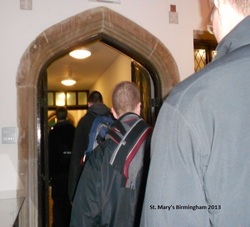 Personal Reflections on a Year with the Sisters of Mercy Like these trainee priests, I entered St Mary's Convent with a clear purpose: they sought spiritual direction and renewal, I was to provide maternity cover for Jenny Smith, archivist for the Union of Sisters of Mercy. Almost a year later, I am handing back the archives to Jenny and contemplating the many lessons I have learned with the Sisters. I hope that my reflections will be of interest and that I can adequately communicate these lessons as they relate to Mercy - this being in the context of the Church, a personal motivation to show compassion towards another and to seek to alleviate his or her misfortune. Almost the first lesson I learned was about the Sisters' practicality! In order to meet their obligations to Pope Francis (who proclaimed a Jubilee Year of Mercy in December 2015) and to the Archbishop of Birmingham (who designated St Mary's as a Diocesan Place of Pilgrimage for the Jubilee Year), a doorway was needed as the official 'Door of Mercy'. This had to be a dignified entrance through which pilgrims could pass as they sought the mercy of God, as well as ensuring effective circulation of people without impacting on other operations within the convent. The Sisters had a choice of fine, stone doorways, but they selected a work-a-day, wooden example (glimpsed in the background of the photograph above). Its location worked well for everyone and the Sisters bedecked it with an arch of everlasting flowers, both to mark the doorway's crucial role and through the shape of the arch, to mirror the Gothic theme in the rest of the building. With this practical matter resolved, the Sisters have conducted groups and individuals on their own spiritual journeys, directly or indirectly connected to the Jubilee Year of Mercy. 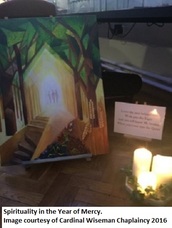 Through meeting the Sisters at St Mary's and by talking and corresponding with Sisters from across the wider congregation, I have come to appreciate just how strong their commitment to the Mercy charism is. They place this charism or gift at the centre of their vocation and strive to deliver spiritual and corporal (practical) works of Mercy wherever they find a need. Working with the archives has provided me with an insight to how this commitment as developed over time and in different locations and I am struck by the relevance of the following image to the Jubilee Year of Mercy. |
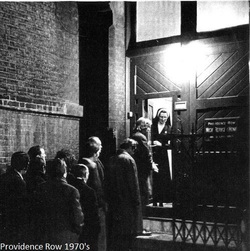
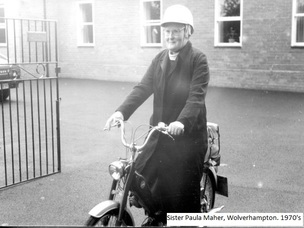
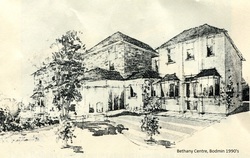
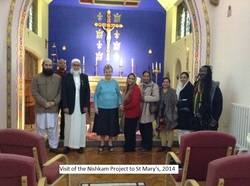
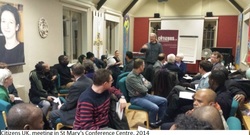
I have learned that the workload shouldered by the Sisters of Mercy is immense, on behalf of us all, whatever our faith or attitude to faith. This note is written in the week that World leaders meet in New York for the United Nations Summit for Refugees and Migrants; and also the week in which World Faith Leaders gather in Assisi to pray for World Peace. The daily work of the Sisters of Mercy should inspire everyone at these meetings.
As my formal engagement at St Mary's ends, I take away a treasure trove of experiences, mostly very happy, a few unfortunately sad because of the circumstances encountered through the Sisters' work but all imbued with their complete commitment to providing Mercy wherever it is required.
Please pray for the Sisters of Mercy in their 185th Year and particularly for those at St Mary's Convent, Birmingham as they celebrate the 175th Anniversary of their foundation.

The Union of the Sisters of Mercy: [email protected]
Archives of the Union of Sisters of Mercy: [email protected]
St Mary's Convent, Birmingham: [email protected]
20/09/2016
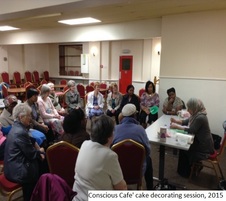
 RSS Feed
RSS Feed